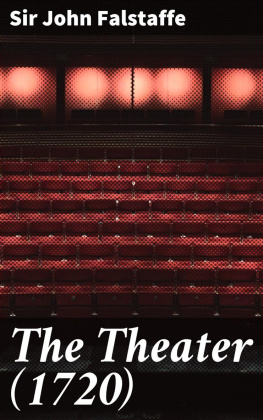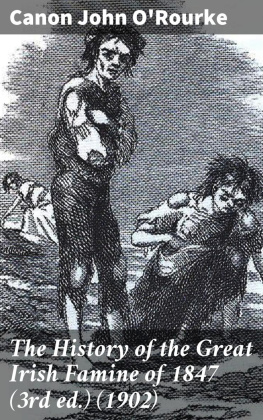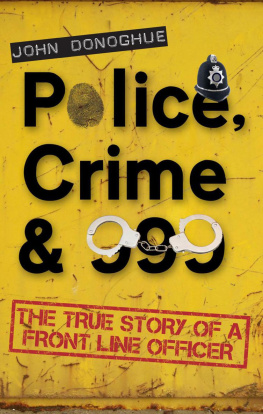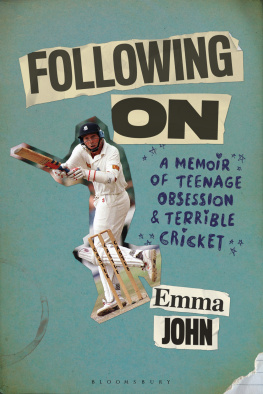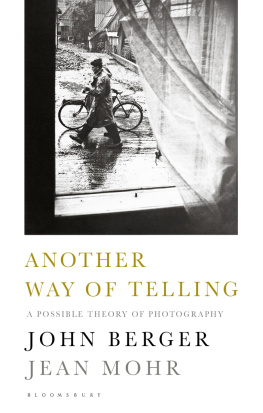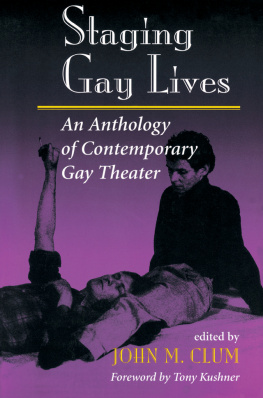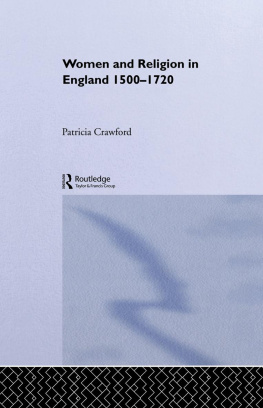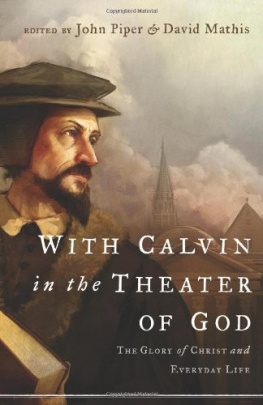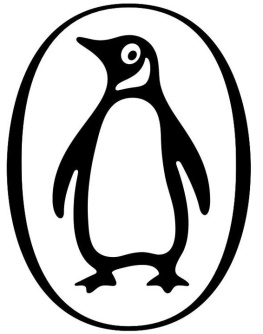INTRODUCTION
Table of Contents
The Theatre, by "Sir John Falstaffe", is according to its author acontinuation of Richard Steele's periodical of the same name. Shortly afterSteele brought his paper to a close on April 5, 1720, the anonymous authorwho called himself "Falstaffe" appropriated his title; or if we preferFalstaffe's own account of the matter, he was bequeathed the title upon thedecease of Steele's "Sir John Edgar". At any rate, the new series ofTheatres was begun on April 9, 1720, and continued to appear twice a weekfor eleven numbers until May 14. On Tuesdays and Saturdays Falstaffeentertained the town with a pleasant essay in the tradition established byThe Tatler.
But the paper of April 9, the first of the new Theatres, was onlynominally the first of a series; Falstaffe, who numbered the paper"sixteen", had already written fifteen papers called The Anti-Theatre inanswer to Steele's Theatre. The demise of Steele's periodical merelyafforded him an opportunity of changing his title; his naturally becameinappropriate when Steele's paper was discontinued and the shorter titlewas probably thought to be more attractive to readers. Falstaffe made noattempt to pass his papers off as the work of his famous rival, to gainpopularity for them through the reputation of Steele. Indeed, theantagonism which existed between the two men would have made such an act ofdeception an unlikely one.
Steele's The Theatre, his last periodical, had been written for acontroversial purpose; by his own admission he wrote it to arouse supportfor himself in a dispute in which he was engaged with the Lord Chamberlain,the Duke of Newcastle. Steele, who by the authority of a Royal Patent wasgovernor of the Company of Comedians acting in Drury Lane, insisted thathis authority in the theatre was not respected by the Lord Chamberlain, theofficer of the Royal Household traditionally charged with supervision oftheatrical matters. Newcastle intervened in the internal affairs of DruryLane and, when Steele protested, expelled him from the theatre. Steelecould do nothing but submit, though he retaliated with a series of bitterattacks on the Duke in The Theatre.
Newcastle found defenders, of whom one of the strongest was Falstaffe, whowrote in direct opposition to Steele's "Sir John Edgar", openly attemptingto provoke that knight to a journalistic contest. But Edgar gave scantattention to his essays, though they were vigorously written and presentedstrong arguments in defense of the Lord Chamberlain's intervention in DruryLane affairs. Steele acknowledged the first number of The Anti-Theatre(it appeared on February 15, 1720) in the fourteenth number of his ownpaper, praising Falstaffe for his promise not to "intrude upon the privateconcerns of life" in the debate which was to follow, but thereafter he allbut ignored his new rival. With the exception of a brief allusion in TheTheatre, No. 17 (an allusion which Falstaffe was quick to take up), Steelemade no more references to the other periodical. For a time Falstaffecontinued to answer the arguments Steele advanced in protest against theLord Chamberlain's action, but finding that he was unable to provoke aresponse, he gave up the debate. After his ninth number of March 14, he hadlittle more to say about Steele or Drury Lane.
Falstaffe, however, did not stop writing when he ceased defendingNewcastle's action. The Anti-Theatre continued to come out twice a weekuntil the fifteenth number appeared on Monday, April 4. And in that paperthere was no indication that the periodical was to end or was to be changedin any way. But on the day after, April 5, Steele issued The Theatre, No. 28, signed with his own name, which he announced would be the last in theseries. As no more Anti-Theatres were known to have appeared after thefifteenth, it has generally been assumed (though as we now know,erroneously) that Falstaffe took his cue from Edgar and abandoned his ownseries.
But there has long been some reason to believe that Falstaffe did not ceasewriting completely after the fifteenth Anti-Theatre. Though nothing wasknown of his later work, a newspaper advertisement of his The Theatre wasnoted. But lacking any more definite information, scholars have doubtedthe existence of the periodical. A volume in the Folger ShakespeareLibrary, however, removes the doubt. There, bound with a complete set ofthe original Theatre by Sir John Edgar, are the ten numbers of the laterTheatre which are reproduced here. These papers include the entire run ofFalstaffe's "continuation" with the exception of one number, thenineteenth, which has apparently been lost. So far as is known, the copiesin the Folger are unique.
The continuation of The Theatre bears little trace of the controversialbitterness present in Steele's paper of that name or in some of the earlynumbers of The Anti-Theatre. Except in the mock will in No. 16, there isno reference to Steele's dispute with Newcastle in the entire series. Nor,in spite of the title, is there any discussion of theatrical matters. As asource of information about the stage, it is virtually without value. Butif it be accepted as merely another of the gracefully written series ofliterary essays which were so abundant in the early eighteenth century, itsvalue and charm are apparent. The unidentified author was an accomplishedscholar, and he wrote on a variety of subjects which have not lost theirappeal. The interest aroused by the essays is perhaps inseparable from ourhistorical interest in the life and manners of the time, but it is none theless genuine. Perhaps nowhere more than in the personal essays aboutsubjects of contemporary importanceof which these are examplesis therea more pleasing record of the social and intellectual life of a period.
Of the ten essays reproduced here, probably the first (No. 16) is the onlyone which contains allusions which will not be generally understood byscholars. In this paper, in the account of the death of Sir John Edgar andin the transcript of Edgar's will, there are references to Steele's disputewith Newcastle over the control of Drury Lane Theatre. Falstaffefacetiously recalls several points which were debated in the journalisticwar provoked by Steele's loss of his governorship, but in themselves thepoints are of too little significance to merit explanation.
The several allusions to the South Sea Bubble in these essays will beeasily recognized. In Nos. 21, 22, and 26, Falstaffe considers theabsurdities engendered by the Bubble (as he had previously in TheAnti-Theatre, Nos. 10, 11, 12, and 14), exhibiting a healthy distrust ofthe fever of stock-jobbing then at its height. Though less extreme thanSteele in his criticism of the South Sea Company, Falstaffe shows himselfto have understood several months in advance of the crash the fundamentalunsoundness of the wave of speculation produced by the company's policies.
The essay on duelling (No. 17) was probably suggested to Falstaffe by abill then pending in Parliament to make the practice unlawful. No other ofhis essays resembles more closely those of his predecessor, Steele, whoduring a lifetime of writing carried on a personal campaign to arouseopposition to duelling. In Steele's own Theatre, there are two essaysdevoted to the subject (Nos. 19 and 26).
One of the most interesting of Falstaffe's papers is his twenty-fourth: hisdiscussion of the recently published memoirs of the deaf and dumbfortuneteller, Duncan Campbell, memoirs which we know to have been writtenby Daniel Defoe. And from Falstaffe's conspicuous reference to


